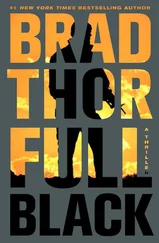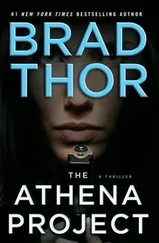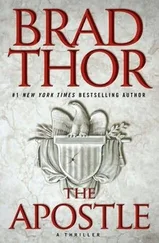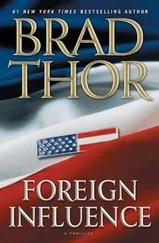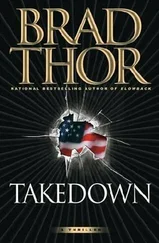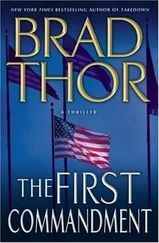The clerk came back shaking her head. “I’m sorry, Mr. Sampras, we still have no mail for you.”
“Darn it. I was hoping to catch a morning train.”
“You can check back later if you like. We have mail arriving all day here.”
“That’s very nice of you. You know, if it’s not too much trouble, it is very cold outside this morning and I don’t even have enough money to have breakfast. Would it be okay if I just sat over there and waited? I’m sure it will be here at some point today.”
Harvath was pushing it. The idea of him sitting in the post office all day might not appeal to the clerk, but he had put just enough flirt into his dialogue with her that he felt she would say yes.
“I don’t think it would be a problem.” She smiled. “I will keep your name here, and next time I go to the back, I will check again. Maybe I’ll even bring you a coffee.”
“Thanks. I have my newspaper, and I will just be sitting over there.”
“Very well. Next customer, please.”
Scot made his way over to the wooden bench and sat down, making himself as comfortable as possible. This could be a very long wait. There was no telling how often Aunt Jane’s post office box got checked, if at all. For all Scot knew, the mail might get forwarded someplace else entirely.
He positioned himself and the paper at such an angle that he could see the box, but to anyone looking in his direction, it would appear as if he were engrossed in his paper.
Ten o’clock came and went. The friendly clerk called him back over to her counter and handed him a cup of coffee, apologizing that his letter was still not there. He sat back down on the bench and waited.
At twenty past ten, a group of elderly people entered the post office en masse. Apparently, they all liked to hike down to the post office and do their business together. Several went to post office boxes, and for a moment Scot had trouble telling if the slight figure in the blue quilted jacket and brown hat was opening the box he had been watching. The group of septuagenarians milled about in front of him, blocking his view.
Through a brief opening in the crowd he saw a gloved hand close and lock a box…his box! Aunt Jane, or someone connected to her, had opened the box and retrieved the letter. He had purposely purchased a brightly colored envelope yesterday and could tell, even from where he sat, that the one in the gloved hand was his.
The throng of elderly Swiss moved toward him as they prepared to get into the stamp line. He politely pushed his way through the tangle of walking sticks, hiking boots, and lederhosen.
Outside on the concrete steps of the post office, Scot looked quickly to his left and caught a glimpse of a blue coat and brown cap turning the corner. He took off after it, slowing only when he got to the intersection.
A person of average height and slim build was walking just ahead of him, seemingly unaware of being followed. Harvath followed and hadn’t made it fifteen feet when the figure crossed the street and looked into a pastry shop window. He knew what the person was doing. It was the same maneuver he had used on many occasions-checking the reflection in the glass to see if anyone was following. He had no choice but to look straight ahead and to continue down the block.
Luckily, streets in Interlaken for the most part were small and provided ample opportunities for ducking off. The first chance Harvath got, that’s exactly what he did.
Since the person he was following had been proceeding in this direction and Harvath was confident he hadn’t been noticed, he hid himself in a doorway and waited for him to walk by. Hopefully, his wait wouldn’t be in vain.
Five minutes passed, then ten, then fifteen…nothing. Harvath had lost him. He was certain of it. Whoever he was following either had gotten spooked and doubled back or had never intended to take this route anyway. He was angry with himself for losing his quarry. Now he would have to show up for the meeting tomorrow blind, with no idea of whom to look for. That was extremely dangerous, but once more, he had no choice. The place he had set for the meeting was known as the Jungfraujoch, the Top of Europe. It was a tourist attraction carved into a glacier on the Jungfrau Mountain. The Jungfrau stood right next to the Eiger. The Jungfraujoch was a dangerous place in which to hold a clandestine meeting, but it was one of the few locations close to Interlaken that Scot felt he knew well enough and would feel safe in. The crowds of tourists would provide ample cover, it was next to impossible for a sniper to set up anywhere, and there was only one way into the Jungfraujoch-by train. Scot planned to have all of his bases covered.
As he stepped out of his hiding spot and turned up a different street to make his way back to the hotel, a pair of steely eyes in another doorway stared out from beneath the brim of a brown cap and memorized every feature of his face. The only thing that prevented Harvath from being followed was his watcher’s need to discover what was inside the brightly colored envelope and return it to the post office box, before its rightful owner arrived to claim it.
“Hey there. Where’s your board?”
The voice caught Harvath completely off guard. He turned to see the group of noisy Americans he had encountered two days ago walking toward him on the platform. Leading the pack was the cute girl with the nose ring.
“You didn’t forget it, did you?” she asked.
“Nope. My friends never showed up, so I’m going to have to rent my gear,” Harvath replied.
“Bummer. We’re heading up to Wengen. You’re welcome to board with us.”
“Thanks. I really appreciate it, but I bought this Good Morning Ticket thing so I’d get a cheap deal up to the Jungfraujoch.”
“We did that yesterday. We took the 6:35 A.M. train. Boy, was that early. But we saved a few francs that way.”
Harvath made small talk with the group until the older, greenish gray Berner Oberland-Bahnen train pulled into the station. The train had eleven cars, the front half of which would go toward Lauterbrunnen, while the back half would go toward Grindelwald. As Harvath was going to take the Grindelwald route to get to the Jungfraujoch, he said good-bye to everyone and hopped on one of the cars in back.
At precisely 7:35, the train pulled out of the station and made its way toward the first stop of Wilderswil. The steep mountains seemed to begin right at the tracks and shoot straight up. Even at this time of year the mountains gave forth with the bright hues of evergreen trees, which were made even more brilliant by the contrast of the pure white snow. As beautiful as the rugged Alpine scenery was now, Scot knew it was nothing compared to what this region was like in spring.
That was how he’d first experienced Interlaken and the Jungfrau region-mountains overflowing with a myriad of colors from all the blooming wildflowers. On the Schynige Platte alone, up and to the left of where the train was now, there were over five hundred different types of plant life visible in the spring. The waterfalls and rivers tumbled and roared into the valleys below, fed by glacier water and melting snow from high above on the surrounding peaks. As Scot continued to watch the scenery, he had to admit to himself that there really wasn’t a bad time of year to visit Switzerland.
At Zweilütschinen, the back half of the train was joined to a new engine, which picked up speed and headed east toward Grindelwald. Looking out the window on the right side of the train, Scot got his first glimpse of Switzerland’s famous trio of mountains: the Eiger, the Mönch, and his destination, the Jungfrau. The mountains, packed with ice and snow, were beautiful and terrifying at the same time. When he’d first visited the Jungfrau region, he had purchased a book called The White Spider, about several of the earliest attempts to scale the Eiger. As he looked out the window, he tried to pick out the area known as Death Bivouac, but the combination of distance and the heavy snow covering made it too difficult.
Читать дальше


